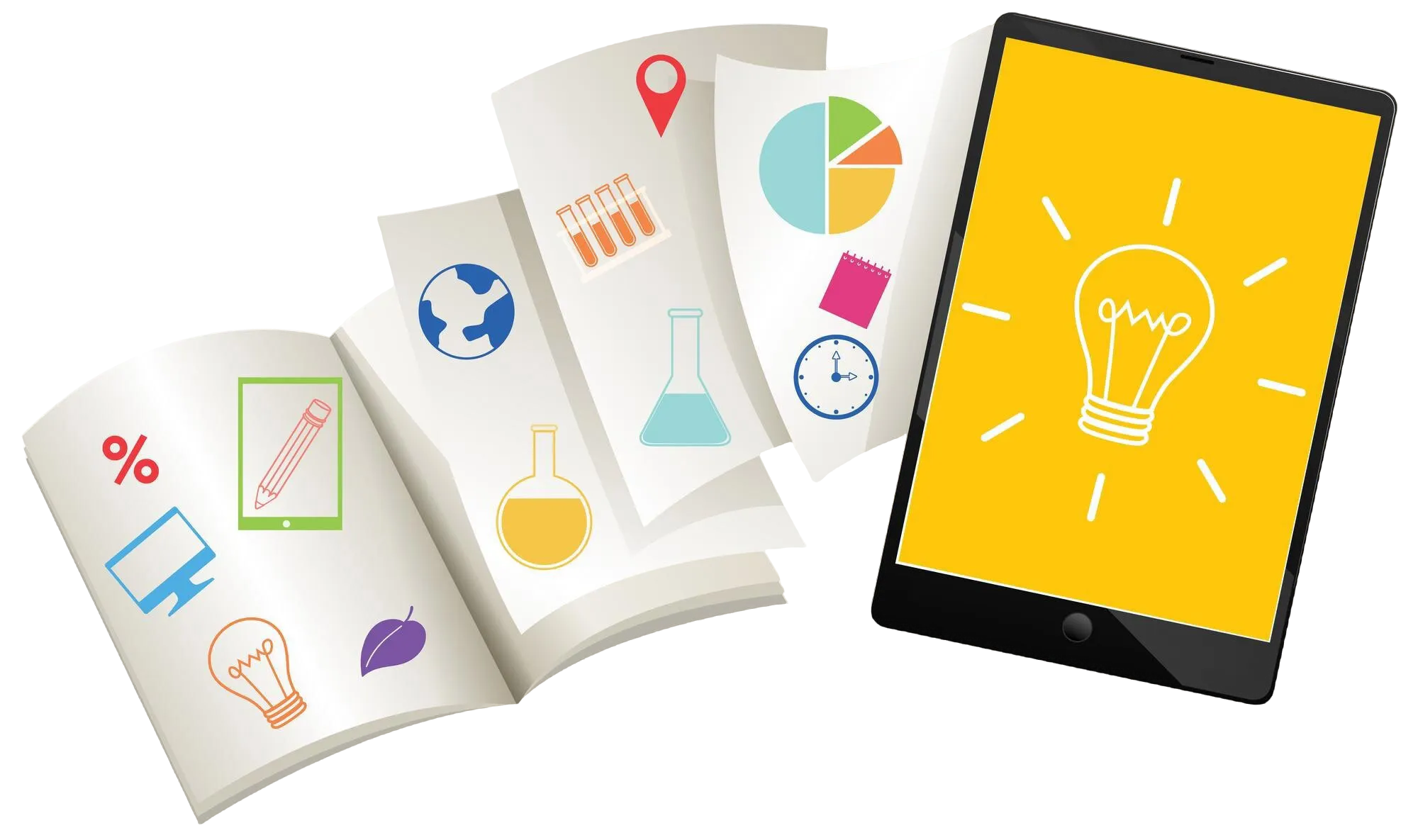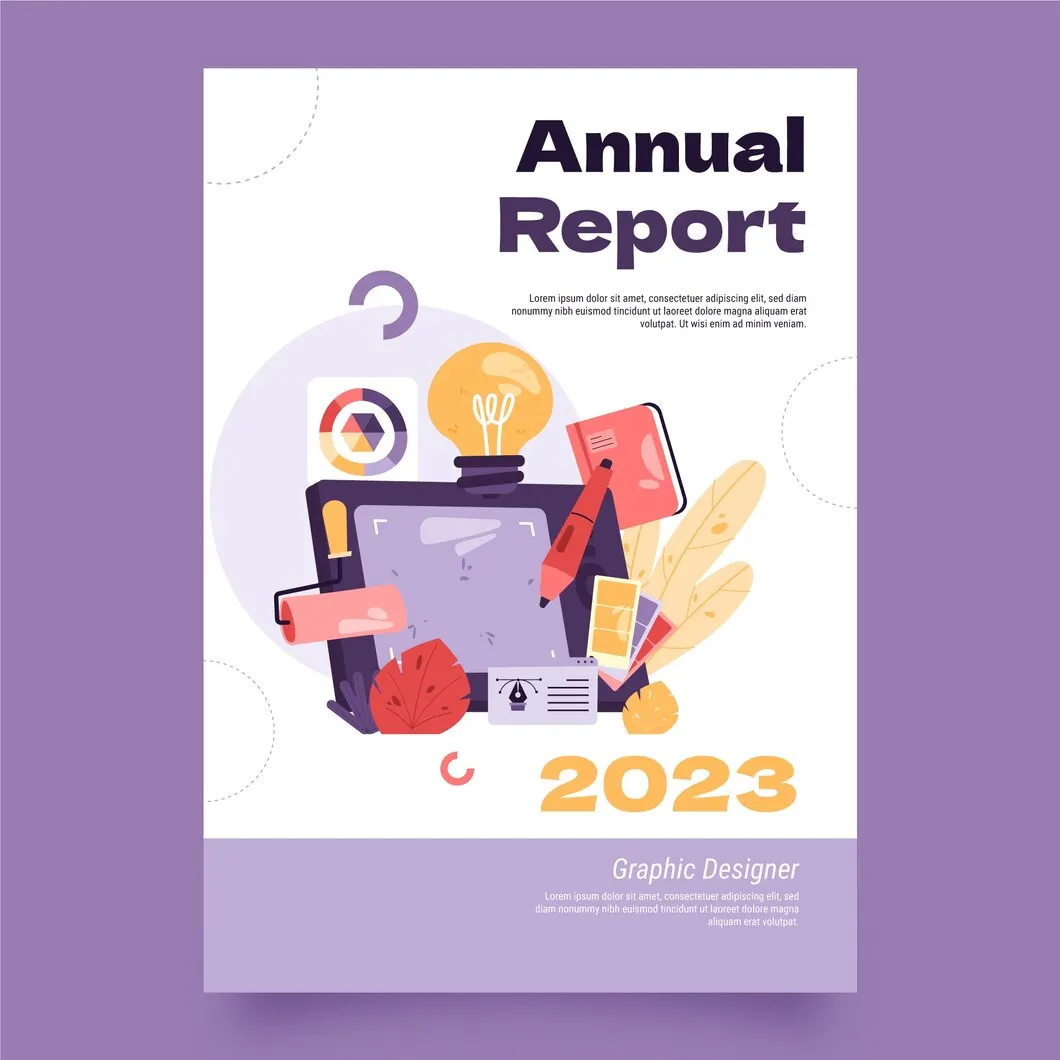The Future of Authorship? How AI is Transforming eBook Writing
Average Reading Time: 4min.
Table of Contents
- Introduction: The Landscape of eBook Writing Today
- Chapter 1: Enter AI: The New Co-Author
- Chapter 2: The Ethical Implications of AI in Authorship
- Chapter 3: The Future of Creativity: Human vs. Machine
- Chapter 4: Embracing Change: How Authors Can Adapt
- Chapter 5: A Day in the Life: Writing with AI
- Conclusion: Looking Ahead, The Evolution of Authorship
In a world where technology is pushing the boundaries of creativity, one can’t help but wonder: what does the future hold for authorship? A recent conversation with a budding writer revealed their struggle with the traditional writing process. It was only when they stumbled upon an AI tool that their prospects started to change. This blog post will explore how AI, especially tools like Scribrr, is revolutionizing the eBook writing journey.
The Landscape of eBook Writing Today
Current Trends in eBook Publishing
The realm of eBook publishing is booming. Numerous authors are discovering the perks of entering this digital space. One primary trend is the rise of self-publishing. Authors can now bypass traditional publishing hurdles, such as finding an agent or meeting publisher requirements. With platforms like Amazon Kindle and others, launching a book has never been easier. This shift empowers independent authors to take control of their work.
The Rise of Self-Publishing
Gone are the days when authors relied solely on big names. Many successful independent authors have carved out their niche in the market. This phenomenon isn't just a fad; it's a significant movement. Why? Because being self-published allows for:
- Complete creative control
- Higher royalty rates
- Immediate market access
Key Statistics on eBook Consumption and Sales
As the industry adapts, so do reader habits. Shocking statistics reveal a remarkable transformation:
- eBook sales in 2022: $1 billion
- Readers preferring eBooks: 80%
Each figure tells a story. The $1 billion mark indicates not just survival, but a thriving market. Furthermore, an astounding 80% of readers choose eBooks for their convenience. This has certainly sparked an evolution in reader preferences.
Evolving Reader Preferences
Readers today favor immediacy and accessibility. The charm of flipping through physical pages often loses its value compared to the ease of instantly downloading an eBook. Digital platforms provide a wealth of content at one’s fingertips. What’s not to love about that?
Challenges Faced by New Authors
While opportunities abound, challenges linger as well. New authors grapple with:
- Market saturation
- Promotion difficulties
- Building a readership from scratch
In such a competitive landscape, how does one stand out? The answer lies in creativity and strategy.
'The shift towards digital has fundamentally changed the way we read.' - Unknown
Enter AI: The New Co-Author
In today's fast-paced literary world, authors seek new ways to enhance their writing. Enter AI tools like Scribrr. These tools are not just bits of software; they’re revolutionizing the writing process.
How AI Tools Assist in Writing
AI platforms offer a myriad of features to aid in crafting compelling narratives. They suggest topics, provide grammar checks, and even analyze the structure of the writing. Authors can save substantial time. But how exactly do they do this?
- Efficiency: By automating repetitive tasks, AI lets authors focus on creativity.
- Idea Generation: Sometimes, the hardest part is starting. AI can kickstart the brainstorming process.
- Creativity: With smart suggestions, authors discover new angles and concepts they might have overlooked.
Real-Life Anecdotes
Many authors have embraced AI as their writing companion. For instance, Emily, a budding novelist, swears by Scribrr for refining her drafts. “It’s like having a co-author who never sleeps,” she remarked. Authors have found their voices through these tools. They can explore different perspectives without losing personal touch.
Traditional vs. AI-Assisted Writing
How does AI compare to traditional writing methods?
With traditional methods, the writing process can feel solitary and labor-intensive. In contrast, AI-powered writing offers:
- Enhanced Collaboration: AI makes the author’s job collaborative, engaging in a dialogue with the writer.
- Quick Feedback: Immediate suggestions help maintain the flow of ideas.
Functionality of Popular AI Writing Tools
Tools like Scribrr boast features that enhance the writing experience. They provide:
- Plagiarism checking to ensure originality
- Grammar and style suggestions that elevate the quality of writing
- Templates for different genres, ranging from fiction to non-fiction
According to survey data, 75% of authors report increased productivity with AI assistance. Additionally, the average time saved per eBook is around 30%. This means more stories can come to life in a shorter timeframe.
'AI is not here to take our jobs, it’s here to make our jobs easier.' - Expert Author
AI technologies are not just abstract ideas. They’re tangible tools that authors are using to enhance their craft. The future of authorship looks bright with AI as a partner in creativity.
The Ethical Implications of AI in Authorship
Artificial Intelligence (AI) is reshaping the landscape of authorship. But with this transformation comes a plethora of ethical concerns. What happens when machines begin to create? Here are some imperative issues to consider.
1. Concerns Over Originality and Plagiarism
One of the most pressing issues in AI authorship is originality. Can a machine genuinely create something new? Or is it just remixing existing ideas? Many authors worry that their unique expressions may be diluted by AI-generated content. Plagiarism becomes a grey area when lines blur between original work and machine-generated output.
2. The Debate Over AI's Role in Creative Processes
There is significant debate about whether AI should have a role in creativity at all. Some view AI as a tool that can enhance the writing process. Others, however, argue that true creativity requires a human touch. They question whether a machine can grasp the complexities of human emotions and experiences.
3. How Copyright Laws Are Evolving Due to AI
Copyright laws are struggling to keep pace with AI advancements. Who owns the rights to AI-generated content? The author? The programmer? Or perhaps no one at all? Legal experts are currently discussing many ongoing copyright cases related to AI. The outcome of these cases could reshape how all authors navigate these new waters.
4. Personal Reflections on Authorship Integrity
In a world where AI contributes to creative projects, questions about authorship integrity arise. Can an author still claim their work as wholly their own when AI has played a role? How can they ensure that their voice remains intact amidst these technological interventions?
5. Predicting Future Ethical Dilemmas
As AI continues to evolve, new ethical dilemmas will surely arise.
Will generative AI be seen as an equal collaborator or simply a sophisticated plagiarism machine? How will future generations define authorship in the age of AI?
According to recent studies, around 60% of authors are concerned about the ethical implications of AI in their work. This anxiety is not unfounded, given that there have been multiple AI-related lawsuits in the past five years regarding content generation.
'With great power comes great responsibility.' - Unknown.
The conversation on AI in authorship is just beginning. As these technologies evolve, understanding their ethical implications will be paramount for authors and society alike.
The Future of Creativity: Human vs. Machine
Exploring the Creative Capabilities of AI
Artificial Intelligence is no longer just about calculations and data processing. It is stepping into the realm of creative expression. AI can generate poetry, compose music, and even draft short stories. But how far can it go? Can it truly understand the essence of creativity?
Can AI Replicate Human Emotions in Writing?
This question explores a fundamental aspect of creative writing. Emotions are vital in storytelling. They drive narratives and create connections. Can AI capture this emotional depth? Some argue that while AI can mimic styles and structures, it lacks genuine understanding. It formulates responses based on algorithms, not feelings. Yet, there are instances where AI-generated prose evokes powerful reactions. Is this a reflection of progress or simply an illusion?
Insights from Neuroscience on Creativity
Neuroscience provides fascinating insights here. The human brain is a complex tapestry of emotions, memories, and creativity. Studies show that certain areas of the brain activate when creating art. AI does not have a brain. It lacks personal experience but can analyze vast amounts of data. This leads to interesting conclusions. AI can generate creative works, but its process differs vastly from human cognition.
Potential Collaborations Between Human Authors and AI
As AI capabilities enhance, collaborations between human authors and AI are becoming more common. This partnership can offer unique perspectives. Writers can use AI as a tool, much like a paintbrush for an artist. They can explore new genres and styles, pushing the boundaries of creativity.
- Innovative Projects Combining Human and AI Storytelling
- Interactive storytelling experiences driven by AI.
- Co-authored novels where human creativity meets AI logic.
- Dynamic content generators that personalize stories based on user preferences.
Real-World Examples
There are existing examples of narrative works developed through human-AI collaboration. One notable project involved writers partnering with AI to craft engaging scripts. These collaborative efforts showcase the future potential of storytelling, combining human imagination with AI's analytical prowess.
Creative Opinions
Experts are weighing in on this evolving field. As noted by a Creative Director,
'The future of storytelling lies in the fusion of human imagination and AI precision.'
This sentiment encapsulates the potential that exists when these two forces come together.
Writers and Their Experimentation
Recent studies show that around 40% of writers experiment with AI in their creative processes. What does this mean for the writing profession? It suggests an evolving landscape where authors adapt to incorporate technology. The lines between human and machine creativity continue to blur.
In conclusion, the exploration of AI's role in the creative process reveals both challenges and opportunities. Its capacity to enhance storytelling while generating questions about authenticity and emotion creates a rich field for discussion.
Embracing Change: How Authors Can Adapt
In a rapidly changing world, authors face a unique challenge. How can they adapt to the introduction of AI tools without losing their voice? The answer lies in embracing change and seeking ways to incorporate AI effectively into their writing processes.
Steps for Integrating AI Tools
To get started, authors can follow these steps:
- Research AI Tools: Various tools can assist in writing, editing, or brainstorming ideas.
- Experiment: Try different tools to find what fits your writing style best.
- Set Goals: Determine what you want to achieve by using AI—better efficiency? Enhanced creativity?
- Seek Feedback: Share your work with trusted peers to see how AI integration has impacted your writing.
Workshops and AI Literacy Programs
Online workshops and programs for AI literacy are becoming increasingly popular.
These workshops can help authors understand:
- The basics of AI and its applications in writing.
- How to utilize AI tools to enhance creativity.
- Ways to refine their writing processes with technology.
According to recent data, 50% of authors report using AI tools. Notably, those who attended workshops saw a significant performance improvement in their work.
Personal Stories of Success
Many authors have successfully adapted to using AI in their writing. By sharing their stories, they inspire others to explore these new possibilities. For example, one author transitioned from traditional writing methods to AI-driven tools and discovered a newfound efficiency in their workflow.
Balancing Technology and Authenticity
While AI can be a valuable ally, it’s vital not to lose authenticity. Finding balance is key. Authors should remain true to their unique voice while utilizing technology. A thoughtful approach ensures that AI serves as a tool rather than a crutch.
Resources for Exploring AI-Assisted Writing
For those looking to dive deeper, many resources are available:
- Online courses focused on AI literacy.
- Books and articles discussing the intersection of AI and writing.
- Forums or support groups for authors adapting to tech.
In the words of an industry leader,
'Adapt or become obsolete.'
This sentiment rings particularly true in the age of technological advancement. Embracing AI can be the key to staying relevant and enhancing one’s craft.
A Day in the Life: Writing with AI
Imagine a modern author’s day, where every hour is infused with the power of artificial intelligence. This scenario is not far-fetched; it’s rapidly becoming a reality for many writers. How does this daily routine unfold? Let's dive into a typical day for an author supported by AI tools.
1. Morning: Brainstorming with AI
The day often starts with brainstorming. An author might spend the first hour interacting with an AI tool. This tool can suggest plot twists, character names, or settings. The author thinks, "How did I never consider this angle before?" This stimulation can lead to innovative ideas, often sparking creativity.
2. Midday: Writing Made Easier
- Drafting: The author begins writing with AI as a supportive partner. Tools can help with grammar, structure, and even suggest alternative phrasings.
- Feedback: After completing a draft, the AI reviews the text. It offers suggestions and highlights areas for improvement.
In fact, a staggering 70% of authors report that AI sparks new ideas. This collaboration pushes the boundaries of traditional writing.
3. Afternoon: Facing Challenges
However, the process is not without hurdles. What happens when the AI suggestions don’t resonate? The author might feel overwhelmed or frustrated. It's crucial to remember that authors are still the creative force. They can choose to ignore or modify AI recommendations to suit their vision.
4. Evening: The Unexpected Sparks
A pivotal moment often occurs later in the day when the author is deep into their work. The AI might generate an unexpected scenario or line that resonates profoundly. As one fiction author aptly put it:
'The blend of my ideas and AI's assistance creates something entirely new.'
This moment of inspiration can be a game changer.
5. Night: Publishing and Reflection
As the day winds down, the author reviews their day’s work. They may spend the last hour preparing for publishing. AI can assist with formatting, cover design, and even marketing strategies.
By incorporating AI into their routine, authors can enhance their creative journey. They interact with technology, yet remain firmly in control of their narratives. This partnership enables them to explore new avenues and discover worlds they might not have achieved alone.
So, how will AI shape the future of authorship? Only time will tell.
Conclusion: Looking Ahead, The Evolution of Authorship
The landscape of eBook writing is on the brink of a remarkable transformation. Predictions for the next decade suggest a significant shift. With technology advancing rapidly, what does the future hold for authors? Will eBooks become the primary mode of storytelling? Or will readers' engagement change dramatically? These questions deserve careful consideration.
Predictions for the Next Decade
Within the next ten years, eBook sales are expected to grow by 15% by 2030. This anticipated growth reflects not only the popularity of eBooks but also the emergence of innovative platforms like Scribrr. These developments support authors in creating compelling content, ultimately making writing more accessible.
Emerging Technologies on the Horizon
As technology continues to evolve, new tools are emerging that can aid in the writing process. For instance, AI writing tools are predicted to number over 200+ in the near future. This surge indicates a shift towards automation in content creation. Could these tools enhance creativity, or might they inhibit originality? The answer lies in how authors choose to utilize them.
Implications for Publishing Houses and Self-Publishing
The long-term implications for publishing houses and self-publishing are profound. Traditional publishers may need to adapt to a world where self-publishing is more common. With every author wielding technology at their fingertips, the competition will heighten. How will big publishers respond? Will they embrace new authors with open arms or continue to rely on established names?
How Readers Might Engage with eBooks in the Future
Engagement methods for readers might also change. Interactive eBooks may become more prevalent. Imagine eBooks that offer multimedia elements or choices for the reader that influence the storyline. This could usher in a new era of immersive storytelling, elevating the reading experience.
Final Thoughts on Technology's Role in Creativity
As a tech futurist once stated,
'Creativity is not static; it adapts to the tools we create.'
This adaptation is essential. Authors, whether seasoned or aspiring, will continually find new ways to innovate through technology. The future for eBooks, authors, and readers is bright, albeit filled with uncertainties. But one thing remains clear: as technology progresses, the art of storytelling will evolve, creating fresh opportunities for creative expression.
For more information on Scribrr, you can check out the following URL:
- Website: https://scribrr.cc
- JV Website: https://scribrr.cc/jv
- Buy Access: Scribrr Monthly, Yearly or One-Time
P.S. Don't forget to follow us on social media, the community, the website and the - - YouTube channel for even more inspiration and updates!
- Website: https://thereviewshed.cc
- Website: https://van-santen-enterprises.com
- Community: https://community.scribrr.cc
- Marketing Courses: https://thetraininghub.cc
- The Store: https://van-santen-enterprises.cc
- YouTube Channel: @VanSantenEnterprises
To Learn more about "Digital Marketing" or to stay informed, subscribe to the free newsletter or community.
.#Scribrr, #AIContentGeneration, #EBookAuthorship, #AIInWriting, #FutureOfWriting, #Scribrr.CC
TL;DR: AI tools like Scribrr are changing the way authors approach eBook writing, offering both opportunities and challenges in the evolving landscape of authorship.








